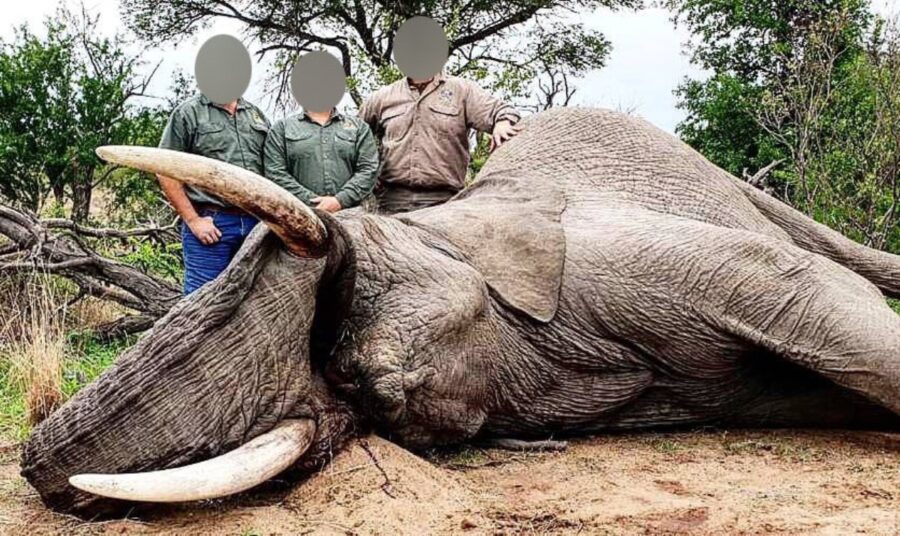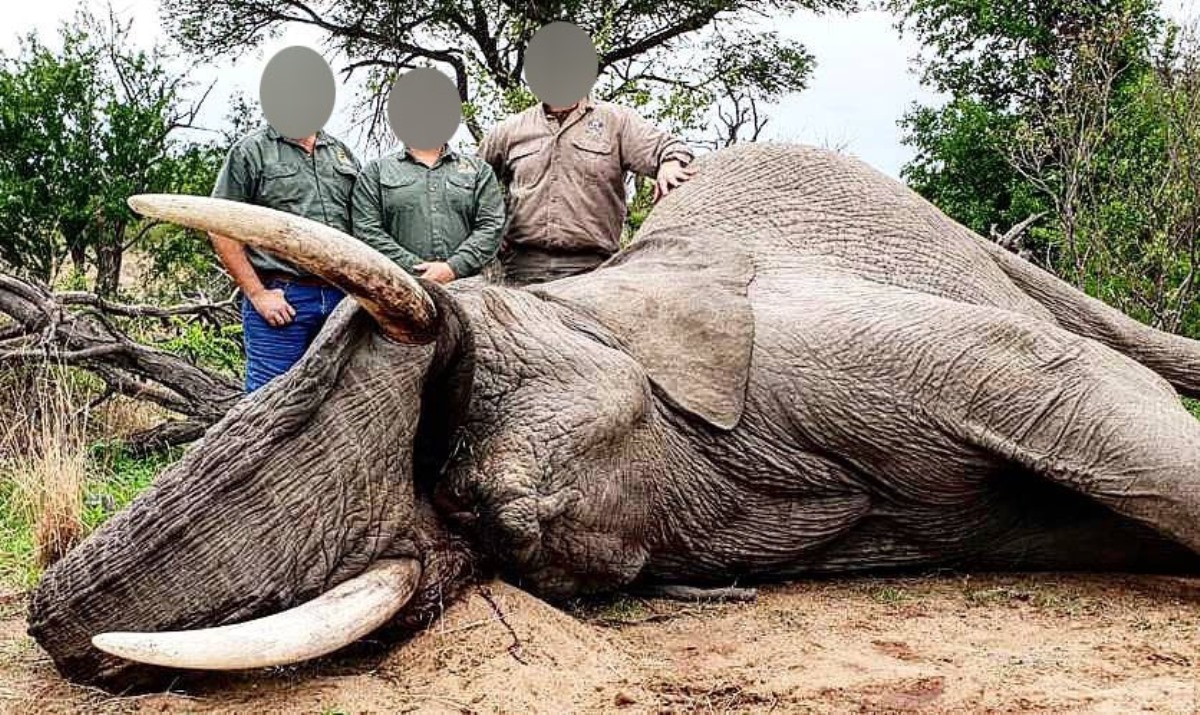
Ramaphosa Says Hunting Key to SA’s Economy, Accuses Pressure Groups of ‘Cultural Imperialism’
South Africa’s President Cyril Ramaphosa issued a statement recently (29 January 2021) arguing that the hunting industry is key to South Africa’s economic growth, and accusing conservation pressure groups of “cultural imperialism”. The statement appeared on the Professional Hunters’ Association of South Africa’s website. Here is the full transcript: HUNTING INDUSTRY KEY TO ECONOMIC GROWTH […]

South Africa’s President Cyril Ramaphosa issued a statement recently (29 January 2021) arguing that the hunting industry is key to South Africa’s economic growth, and accusing conservation pressure groups of “cultural imperialism”. The statement appeared on the Professional Hunters’ Association of South Africa’s website. Here is the full transcript:
HUNTING INDUSTRY KEY TO ECONOMIC GROWTH AND TRANSFORMATION – By Cyril Ramaphosa
In November 2020 the activist group People for the Ethical Treatment of Animals (PETA) released what it claimed was an expose detailing the involvement of Phala Phala Wildlife in the trophy hunting industry.
By virtue of my ownership of Phala Phala Wildlife, PETA sought to generate negative publicity for and cause embarrassment to the office of the President and to the country.
A number of unsubstantiated allegations were made against Phala Phala and me personally. PETA subsequently attempted to garner greater international coverage for its alleged expose in a number of newspapers.
PETA’s claims are without basis or substance.
Phala Phala is a privately-owned wildlife farm that is run in accordance with conservation and wildlife management principles.
Contrary to PETA’s assertions, neither Phala Phala nor I have a stake in the trophy hunting industry.
It is furthermore also patently false that Phala Phala breeds game for the purpose of being sold to trophy hunters; a claim they later made in a UK-based newspaper.

Phala Phala is well known and recognised for its wildlife breeding and management practices that comply with the best ethical and lawful practice in the sector; as well as for its contribution to the racial transformation of the sector.
This includes providing educational bursaries for black students and donating game to disadvantaged communities.
Furthermore, Phala Phala’s breeding programme focuses on enhancing the genetic material of some of South Africa’s most iconic species that once faced extinction as a result of disease, habitat loss and excessive hunting.
In testament to this sterling reputation, a number of industry organizations have expressed support for Phala Phala in the wake of the PETA story; including the Professional Hunters’ Association of South Africa (PHASA), Wildlife Ranching SA, the umbrella body Hunting and Wildlife Associations of South Africa (HAWASA) and others.
Lobby groups like PETA and other anti-hunting organizations either conflate unscrupulous hunting practices by a select few with the legal, well-regulated hunting industry: or they seek to impose their views on animal welfare on communities and societies in which hunting plays an important part.
In this regard, they single out African countries whose economies benefit from the income generated by the wildlife management sector.
Hunting is one of the legal and well-regulated activities pursued by private sector entities as well as communities that have regained their land back to generate income that also covers the costs of conservation and contributes to the development and the well-being of communities.
It forms part of our country’s policy on the sustainable utilization of natural resources.
Like other countries on the continent and globally, our natural resource management practices are guided by international environmental agreements such as the Convention on International Trade in Endangered Species (CITES) and the Convention on Biological Diversity (CBD).
Hunting tourism is a major contributor to the economy and is valued at over R6bn per annum. The hunting industry creates jobs and supports small business and enterprise development.
It provides economic opportunities for communities who have benefited from land restitution, and facilitates the entry of previously disadvantaged communities into the wildlife economy; thereby supporting government’s wider economic transformation objectives.

The transformation of the wildlife sector is a national priority of the South African government, in line with its commitment to land ownership transformation and the development of rural communities.
The private sector in South Africa has a long history of contributing to conservation.
The successful recovery of a number of animal species from the brink of extinction are a direct result of private sector contribution to conservation.
Today, South Africa’s private sector manages approximately 50% of the national rhino population without any government subsidy. The success of these contributions has been driven by options to generate income from non-consumptive and consumptive use of wildlife and wildlife products.
The multi-dimensional nature of hunting is recognized by a number of international conservation agencies.
The International Union for Conservation of Nature (IUCN) that affirms that well-regulated and well-managed hunting can play an important role in sustainable wildlife management for communities in many parts of the world.
The World Wide Fund (WWF) notes that excluding instances where threatened species are involved, hunting programmes that are scientifically-based, properly managed and enforced can be beneficial for sustainable resource management.
Given the sector’s economic contribution and transformative potential, it is regrettable that African countries, including South Africa are facing an onslaught from anti-hunting organizations based abroad, including PETA.
Hunting is not only legal in African countries but in a number of places around the world including Europe, North America, South America, Asia and Australia.
But it is African countries that are being singled out for criticism.
This speaks to a growing tendency of foreign-based pressure groups such as PETA and more recently, the Campaign to Ban Trophy Hunting, and others who are trying to impose their views on African countries.
Unfortunately, some local non-governmental organizations lend a helping hand to some of these international NGO’s; most likely without fully appreciating their agendas.
In their attempts to impute illegality to what is a legal and regulated economic activity, they undermine the wildlife management practices that form part of South Africa’s and Africa’s diverse economy and national culture.
Within the Southern African Development Community (SADC) region, the sustainable utilization of wildlife supports local communities in the provision of food and clothing.
SADC’s recognition of the importance of conservation and sustainable use of wildlife resources in the region is set out in the region’s Protocol on Wildlife Conservation and Law Enforcement.
The Protocol, that was developed through a democratic process, emphasises the need for regionally-agreed approaches to conservation, management and the enforcement of law to stop illegal uses.
The Protocol also promotes national and regional capacity building and the facilitation of community–based wildlife management initiatives.
As noted in a recent article titled ‘The Battle inside CITES’, the SADC region supports significant populations of Africa’s iconic wildlife species, and represents more than 345 million people.
All decisions around wildlife management must be the prerogative of these sovereign states, taking into account their significant conservation experience.
As noted in the same article, a number of African states who are party to CITES are increasingly raising concerns about the Western-influenced approach to CITES trade proposals, amongst others.
It is African states, and not pressure groups based abroad, who must take decisions around natural resource management options that serve their sovereign interests, while giving due recognition to international conservation laws.
African states must also take pride in that Africa is the only continent on earth with a relatively intact assemblage of mega-herbivores.
All other continents have either completely decimated theirs or driven them to extinction.
Africa still boasts one of the highest diversity of mammals, birds, reptiles, amphibians and plants.
International special interest groups should seek to collaborate with rather than to antagonize African states in the management of wildlife and biodiversity in general.
South Africa remains committed to growing the protected area estate and continues to broaden the participation of communities and the private sector in conservation efforts.
The legal, well-regulated hunting industry forms an important part of this. We further remain committed to advancing the principle of sustainable utilization of natural resources.
The conservation and environmental chauvinism displayed by pressure groups are a threat to global conservation efforts, including on multilateral platforms. This can ultimately undermine, rather than promote, conservation.
It seeks to impose rules and standards partially on particular countries, whilst leaving others out.
It undermines the efforts of African governments to do what is in their national interest and in the interests of their citizens.
It is a form of cultural imperialism.
Statement by Cyril Ramaphosa, as it appears on the Professional Hunters’ Association of SA’s website here.
READ ALSO: PETA’s response to President Ramaphosa’s trophy hunting statement.